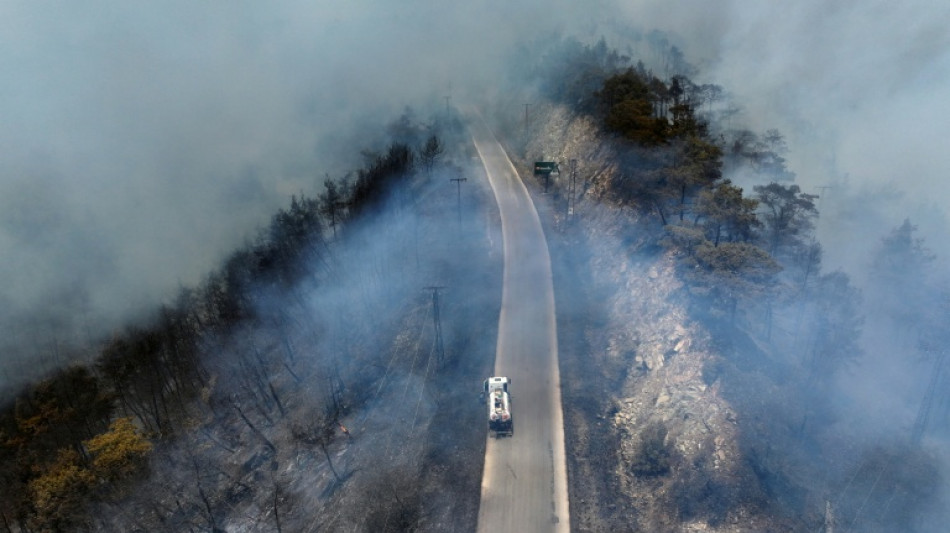
SCS
0.0200

Syrian authorities said some 100 square kilometres (40 square miles) of forest had "turned to ash" in wildfires as firefighters from neighbouring Jordan arrived Sunday to battle a fourth day of blazes in the province of Latakia.
Syrian emergency workers have faced tough conditions including high temperatures, strong winds, rugged mountainous terrain in the coastal province and the danger of explosive war remnants, in a country worn down by years of conflict and economic crisis.
An AFP correspondent in Latakia's Rabiaa region saw emergency workers battling a blaze near homes, while vast swathes of forest and olive groves were burnt and smoke filled the air over a long distance.
Jordanian civil defence teams crossed into Syria on Sunday morning, the Syrian ministry for emergencies and disaster management said, after Turkey sent assistance a day earlier.
Minister Raed al-Saleh said on X that "hundreds of thousands of forest trees over an estimated area of around 10,000 hectares (25,000 acres) in 28 locations have turned to ash".
He later decried "a real environmental disaster" at a press conference in the province.
More than 80 teams including civil defence personnel have been helping battle the blaze, he said, noting local organisations and residents were also providing assistance, in addition to teams and firefighting aircraft from neighbouring Jordan and Turkey.
Saleh said it would take days to declare the blazes completely extinguished once the fire was brought under control, calling them "catastrophic".
- More assistance needed -
Syria's defence ministry said the air force was assisting, publishing images of a helicopter collecting and dropping water.
Jordan's public security directorate said in a statement that the "specialised firefighting teams from the civil defence... have been provided with all the modern equipment and machinery necessary to carry out their duties to the fullest extent".
Swathes of forested area and farmland have burnt and some villages evacuated as the fires raged including near the Turkish border.
The United Nations deputy envoy to Syria Najat Rochdi said in a statement Sunday on X that Damascus "needs more international assistance" to face the fires.
A statement from the UN resident and humanitarian coordinator for Syria Adam Abdelmoula said that "UN teams are on the ground conducting urgent assessments to determine the scale of the disaster and to identify the most immediate humanitarian needs".
Nearly seven months after the ousting of longtime ruler Bashar al-Assad, Syria is still reeling from more than a decade of civil war that ravaged the country's economy, infrastructure and public services.
With man-made climate change increasing the likelihood and intensity of droughts and wildfires worldwide, Syria has also been battered by heatwaves and low rainfall.
In June, the United Nations Food and Agriculture Organisation told AFP that Syria had "not seen such bad climate conditions in 60 years".
H.Vesely--TPP